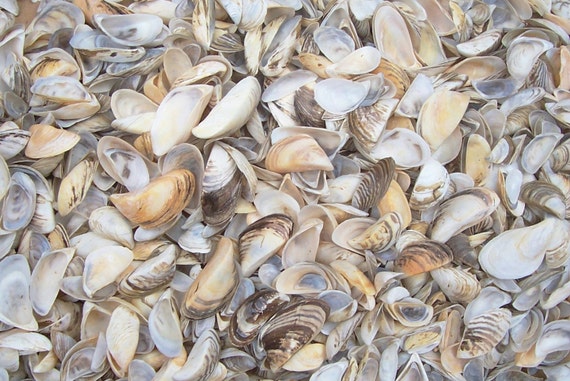

Mitigation procedures include manual removal, robotic cleaning, thermal backwashing, water jetting, application of molluscicides, and possibly line pigging and acidic chemical cleaning. Establishment of mussels in raw water systems should be prevented because subsequent removal is difficult and expensive. Mussels can reduce effective pipe diameters and foul intake structures, steam condensers, heat exchangers, fire protection systems, and cooling tower basins. Settlement occurs at flow velocities less than 1.5-2.0 m/sec.

Accumulations of adults impede flow, more » aggravate sedimentation and corrosion, and foul small-diameter components. Veligers enter raw water systems on intake currents to settle and grow to adults attached by secreted byssal threads to hard surfaces. Its planktonic veliger larval stage disperses on water currents and adults are transported by human and natural vectors, making it likely to spread throughout most of the United States and southern Canada except for the southwestern and southern United State, where summer water temperatures are above tolerated levels. It has since spread throughout Lake Erie. Dreissena polymorpha, the freshwater macrofouling zebra mussel, was introduced to Lake St. To learn more about Clean Boats, Clean Waters, contact Latimore at or (517) 432-1491 or visit. The Michigan program is part of the National Sea Grant College Program, a network of more than 30 university-based programs in coastal states across the country administered through the National Oceanic and Atmospheric Administration. The Michigan Sea Grant report on mussel infestations can be found at. "Then contact the Michigan Sea Grant Extension educator nearest you." "If you find what you think is a zebra mussel in a lake or stream that is not already on the list of infested lakes, note the date and the precise location where you found it, store it in rubbing alcohol and take a picture of it (several, if possible)," said Rochelle Sturtevant, outreach specialist for the Great Lakes Regional Sea Grant. Michigan law now also prohibits placing a boat in state waters if it has an aquatic plant attached (exceptions are made for wild rice).Ĭitizens can help prevent the introduction of zebra mussels and other aquatic invasive species into more of Michigan's waters by participating in Clean Boats, Clean Waters. Know the Law: Michigan law prohibits possessing or transporting any live transgenic (genetically engineered) organisms, several live nonnative fish and many nonnative aquatic plants, including entire plants, fragments and seeds, as well as hybrids and genetically engineered variants.Dispose of unwanted live bait in the trash.Drain water from equipment (boat, motor, trailer and live wells) before transporting it.Inspect and remove any visible mud, plants, fish or animals before transporting recreational equipment.Latimore said boaters should complete the following steps when moving boats: "Boaters can be especially helpful in slowing the spread of the pesky mollusk and preventing damage to their equipment," said Jo Latimore, specialist in the MSU Department of Fisheries and Wildlife, who coordinates the Michigan Inland Lakes Partnership and Michigan's Clean Boats, Clean Waters program. The state spends millions of dollars each year in an attempt to slow the spread of the organism and the Michigan Sea Grant provides research and education for the cause. They have primarily invaded Oakland County, which has 51 infested lakes, followed by Livingston County with 17, Cass County with 14 and Branch County with 11.Īccording to Michigan Sea Grant, zebra mussels upset ecosystems, threaten native wildlife and damage structures. The Michigan Sea Grant, a cooperative program between Michigan State University and the University of Michigan, recently confirmed Zebra mussel infestations in 255 Michigan inland lakes and in 17 of the state's rivers and streams.Īll reports of zebra mussel infestations have come from lakefront property owners, other interested citizens and resource managers who found adult colonies of the mussels clinging to surfaces such as boats, docks, rocks, dams and water pumps.Ī small freshwater mollusk, the zebra mussel has been invading America's rivers and lakes since 1988.


 0 kommentar(er)
0 kommentar(er)
